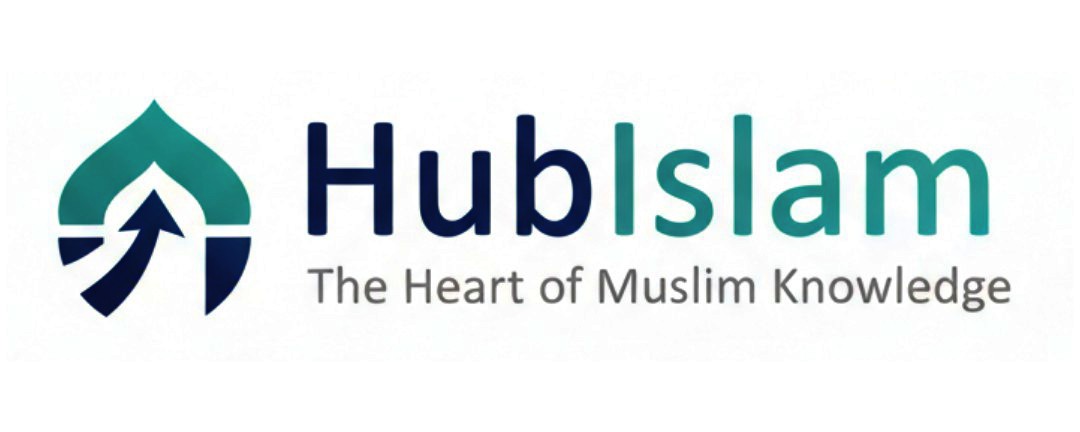Learning the Qur’an online has become extremely accessible in Pakistan over the past decade. Whether you’re a parent looking for a trustworthy academy for your child, an adult who wants tajweed classes, or someone aiming to memorize (Hifz) the Qur’an with qualified teachers, there are many reputable Pakistani online academies to choose from. This article reviews the best online Quran classes and academies based in (or serving) Pakistan — with course details, teaching approach, class formats, languages, price/fee notes (where available), trial offers, and the website URL so you can check them yourself.
Note: I visited each academy’s website to verify the details below. Where I could find course lists, trial offers, teacher qualifications, or fee information on the academy’s pages, I’ve summarized it and included the site URL so you can confirm directly.
Quick comparison (at-a-glance)
| Academy | Best for | Course types | Trial |
|---|---|---|---|
| TarteeleQuran | Balanced tajweed + tajreed + kids | Nazra, Tajweed, Hifz, Tafseer, Arabic | Free trial / demo |
| IQRA Online (international) | Certified 1:1 tuition, structured curriculum | Nazra, Tajweed, Hifz, Tafseer, Arabic | Trial/demo |
| QuranHost | Multilingual teachers, global staff | Nazra, Tajweed, Hifz, Arabic | Free trial + flexible plans |
| AlQuranStudy / Al-Quran Study | Pakistan-based, 24/7 classes | Nazra, Tajweed, Hifz, Translation | Usually trial/demo |
| Pak Quran Academy | Pakistan-focused platform, free trial | Nazra, Tajweed, Hifz | 3-day free trial |
| Al-Huda Quran Academy | Female-focused options, Urdu-friendly | Nazra, Tajweed, Hifz | Info on site |
| Al-Khair / Quran Pak Online | Structured classes, LMS | Nazra, Tajweed, Hifz, Kids courses | Info on site |
| Iqra / Iqra Quran Academy (Pak-based variants) | Many Pakistani academies use “Iqra” name — check local site | Nazra, Tajweed, Hifz | Often 3-day trial |
| Noor Academy Pakistan | Pakistan-centered academy | Tajweed, Hifz, Kids classes | Info on site |
| Quran Pak Tutors / local tutor marketplaces | Best when you want to hire specific local tutor | 1:1 Quran lessons, flexible rates | Varies |
The rest of this article expands on each academy, gives buying/selection advice, sample questions to ask tutors, recommended course structures, technology/zoom tips, and an FAQ.
Detailed reviews — what each academy offers (sorted alphabetically)
Each subsection includes a short summary, what they’re best at, courses offered / teaching approach, languages & class formats, trial & fee notes (when listed), and the website URL.
TarteeleQuran — recommended for balanced tajweed, variety of teachers
Why students choose them: TarteeleQuran promotes a wide set of courses (nazra, tajweed, memorization, tafseer) and emphasizes quality tajweed + tarteel. They also advertise native Arab and Pakistani teachers and offer multilingual instruction. TarteeleQuran positions itself as accessible for kids and adults and highlights a curriculum that blends recitation and understanding.
Courses / curricula: Nazra (reading from scratch), Tajweed (rules of recitation), Tarteel (melodic, measured recitation), Hifz (memorization), Tafseer/Translation, and Arabic-for-Quran.
Teaching approach & teachers: Mix of native-Arabic and Pakistani teachers; classes delivered 1:1 or small group depending on package. They note teacher certifications and offer recordings and LMS tracking in some plans.
Format & tech: Zoom/Skype/online classroom; some academies under their umbrella maintain learning management systems to track attendance and lesson progress.
Trial & fees: TarteeleQuran often advertises a free trial/demo class and different monthly packages — check their pricing page for current rates and promotions.
Website: https://www.tarteelequran.com/
IQRA Online (iqraonline.com) — strong structured curriculum & certified teachers
Why students choose them: IQRA Online (the international site) emphasizes certified teachers and a structured one-to-one curriculum; it’s a good fit for families who want a formal progressive syllabus and transparent teacher vetting. They serve students worldwide and have schedules for different timezones.
Courses / curricula: Nazra, Tajweed, Hifz, Tafseer, Arabic language courses oriented towards Qur’anic comprehension.
Teaching approach & teachers: Teachers are described as trained and supervised by a central academic team; emphasis on one-to-one tuition and clear level assessments.
Format & tech: Mostly Zoom/online live classes, with available recordings and teacher progress reports.
Trial & fees: IQRA Online advertises free demo classes and different plans for 1:1 sessions — contact them through their site for current pricing and schedule options.
Website: https://iqraonline.com/
Pak Quran Academy — Pakistan-based, 3-day free trial
Why students choose them: Pak Quran Academy markets directly to Pakistani learners and diaspora communities and advertises a 3-day free trial. Good option for parents in Pakistan who want local time scheduling and Urdu-speaking support.
Courses / curricula: Nazra / Noorani Qaida, Tajweed, Hifz, Tafseer, basic Islamic studies.
Teaching approach & teachers: One-to-one classes with emphasis on gradual fluency; they highlight flexibility in schedule and affordable monthly plans.
Format & tech: Zoom/Skype or their preferred online platform; they show a booking and trial workflow on the site.
Trial & fees: 3-day free trial promoted on the site; monthly plans available — see site for updated prices.
Website: https://www.pakquranacademy.com/
QuranHost — multilingual staff, diverse teacher nationalities
Why students choose them: QuranHost advertises a team of native Arab and non-Arab teachers (from Saudi Arabia, Egypt, Pakistan, USA, UK and other countries), making it good for learners who prefer teachers with particular accents or native Arabic backgrounds. They emphasize language accessibility (English, Urdu, Arabic, Hindi).
Courses / curricula: Nazra, Tajweed, Hifz, Arabic, Tafseer. They also offer specialized classes and claim flexible teacher matching.
Teaching approach & teachers: Skilled teachers, often native Arabic speakers for tajweed accuracy; 1:1 sessions with structured lesson plans.
Format & tech: Zoom/online platform; they advertise trial classes and flexible scheduling.
Trial & fees: Trial/demo class available; fees vary with teacher type (native Arabic teachers typically cost more). See site for exact figures.
Website: https://quranhost.com/
Al-Quran Study (AlQuranStudy.com) — long-standing Pakistan-based academy
Why students choose them: Al-Quran Study advertises long experience teaching online from Pakistan, 24/7 classes, and a broad course list. It’s a common choice for students seeking round-the-clock scheduling options and Pakistani teachers.
Courses / curricula: Noorani Qaida, Quran Recitation (Nazra), Tajweed, Memorization (Hifz), Basic Islamic courses, Arabic for Quran.
Teaching approach & teachers: One-to-one classes with regular assessments; they stress flexible timing and teacher availability across timezones.
Format & tech: Zoom/Skype/online classroom; they highlight course options for ages 4–75.
Trial & fees: Many Pakistan-based academies in this space offer trial/demo classes; check their contact/admission pages for the latest offers.
Website: https://alquranstudy.com/
Al-Huda Quran Academy (Pakistan) — female-friendly options and Urdu medium
Why students choose them: Al-Huda Quran Academy emphasizes experienced male & female instructors and courses suitable for kids and women. Good choice if you prefer female teachers or an Urdu-medium learning environment.
Courses / curricula: Nazra, Tajweed, Hifz, Tafseer, Arabic basics.
Teaching approach & teachers: The academy features structured courses and highlights female tutors for female students where requested.
Format & tech: Live online classes via Zoom; they provide course packages for different age groups.
Trial & fees: Details on trial and pricing appear on the site — contact the academy for current plans.
Website: https://alhudaquranacademy.pk/
Al-Khair / QuranPakOnline — LMS + structured records
Why students choose them: Al-Khair (QuranPakOnline) markets structured classes and a learning management system (LMS) to keep records of schedules, lessons, and teacher changes. This is helpful if you want formal tracking and backup teachers.
Courses / curricula: Noorani Qaida, Nazra, Tajweed, Hifz, and tailored kids’ programmes.
Teaching approach & teachers: Focus on certified tutors, progress tracking, and alternative teacher assignment when needed.
Format & tech: They advertise a dedicated online panel / LMS and class continuity measures.
Trial & fees: Check contact/registration pages for promotions and fee plans.
Website: https://quranpakonline.com/
Iqra / Iqra Quran Academy (multiple Pakistani variants) — widely used name, check local site
Why students choose them: “Iqra” is a common brand name for many Quran academies; several Pakistan-based “Iqra” online sites provide low-cost, flexible classes and trials. They typically target kids and adult beginners with structured Nazra progress. Examples include Iqra Online Academy and Iqra Quran Academy — verify the specific website you plan to enroll with.
Courses / curricula: Noorani Qaida, Nazra, Tajweed, Hifz, Arabic and Islamic studies.
Teaching approach & teachers: One-to-one, graded progression; many advertise 3-day or 1-week trial classes.
Format & tech: Zoom/Skype/Google Meet depending on the branch.
Trial & fees: Often free trial/demo classes are offered; fees vary by package and teacher.
Example websites:
- https://www.iqraquranacademy.website/ . iqraquranacademy.website
- https://iqraonline.pk/ . iqraonline.pk
Noor Academy Pakistan — Pakistan-centric approach
Why students choose them: Noor Academy Pakistan markets itself as a local, Pakistan-centered option with courses for children and adults, aiming for easy access and Urdu-friendly instruction.
Courses / curricula: Recitation, Tajweed, Memorization, Tafseer and kids-specific curricula.
Teaching approach & teachers: Classroom-style one-to-one tuition emphasizing Tajweed rules for correct pronunciation.
Format & tech: Live online lessons; contact via site for trial and fee details.
Website: https://nooracademypakistan.com/
Quran Pak Tutors & tutor marketplaces — hire specific local teachers
Why students choose them: If you prefer to pick an individual tutor based on reviews, hourly rates, language and local time availability, tutor marketplaces (or local “Quran Pak Tutors” style services) allow you to contact many teachers and negotiate directly. This is ideal for highly personalized plans and flexible hourly arrangements.
Courses / curricula: Varies widely — any course type possible depending on the tutor (Nazra, Tajweed, Hifz, Arabic, Tafsir).
Teaching approach & teachers: Individual tutors’ profiles usually list experience, languages, and sample videos or recorded lessons.
Format & tech: Zoom/Skype/WhatsApp/Google Meet — many tutors conduct classes via WhatsApp video for younger children.
Trial & fees: Tutor marketplaces allow you to message tutors and often arrange a short paid or free trial.
Websites:
- https://quranpaktutors.com/ . quranpaktutors.com
- https://www.teacheron.com/tutors/online-quran-tutors-in-pakistan
How to choose the right online Quran academy — checklist & buying guide
Choosing an online Quran academy is about safety, teacher quality, and a good match between your goals and the academy’s strengths. Use this checklist before enrolling:
- Define your goal — Nazra (reading), Tajweed (rules), Hifz (memorization), Tafseer (understanding). Different academies specialize differently.
- Teacher qualifications — Ask for teacher certification, supervision mechanisms, and whether teachers are native Arabic speakers (useful for tajweed) or Urdu/English speakers (useful for beginners).
- Trial/demonstration class — Always take the free/demo trial class to check teaching style, communication, and the platform. Most reputable Pakistani academies advertise demos. Pak Quran Academy+1
- 1:1 vs Group classes — For beginners and Hifz, 1:1 is often better. Group classes are cheaper but give less immediate correction.
- Class length & frequency — Typical classes: 30–60 minutes; Hifz students often need 1 hour+ per day for strong progress.
- Recording & progress tracking — Useful if you want to review lessons or track memorization progress. Many academies offer LMS or class recordings. onlinetarteelequran.com+1
- Safety & background checks — Ask whether the academy vetting teachers or does identity checks, especially if children are involved.
- Language of instruction — Urdu, English, Arabic; match with your comfort level.
- Replacement teacher policy — If your teacher is unavailable, does the academy provide a backup instructor? Some academies advertise alternative teacher policies. onlinetarteelequran.com
- Fees & cancellation policy — Understand refund rules, missed class policies, and monthly vs. hourly plans.
Sample questions to ask before enrollment
- Can I have a demo class with the teacher you will assign?
- What is the teacher’s experience in teaching my age group and level?
- How do you assess initial level and design the syllabus?
- Do you offer progress reports and lesson recordings?
- What is your teacher-replacement and refund policy?
- How many students per class (if group class)?
- Are Hifz students assigned a dedicated Hafiz and daily review schedule?
Course structure recommendations by goal
Beginner / Nazra (readers starting from scratch):
- 20–30 minute daily lessons (or 40 minutes 3x/week) to build letter recognition, nun, meem, madd rules, and basic reading fluency.
- Use Noorani Qaida as base.
- Expect 2–3 months for confident basic reading (varies by learner and practice).
Tajweed & Tarteel (pronunciation rules):
- 30–45 minute lessons 3–5x/week with a focus on articulation points (makharij), noon/sakinah, madd, ikhfa, idgham, ghunnah, etc.
- Practice with short surahs and recorded feedback.
Hifz (memorization):
- Daily 45–90 minute live lessons + daily revision assignments.
- Structured muraja’a (review) schedule: new portion + previous day + weekly/biweekly revision.
- Teacher should assign a consistent portion and provide audio recordings for revision.
Tafseer & understanding:
- Weekly 45–60 minute lessons with translation, context, and thematic connections.
- Useful once reading fluency is established.
Pricing expectations (general guide)
Fees vary widely based on teacher nationality, class length, and 1:1 vs group formats. Typical ranges you’ll find in the Pakistan-market space (approximate, for orientation only):
- Group classes (per month): PKR 2,000–8,000 (depends on frequency & group size).
- 1:1 basic Nazra/Tajweed (per month): PKR 6,000–20,000 (or hourly rates PKR 300–1000 per class).
- 1:1 with native Arab / certified hafiz: generally higher — PKR 15,000+ per month.
- Hifz intensive programs: often structured monthly packages and sometimes daily scheduled lessons (prices vary significantly based on teacher experience).
Always confirm current pricing with the academy — fees change and many academies provide discounts for longer-term packages or siblings. TarteeleQuran
Safety, privacy & safeguarding (for parents)
- Ask academies whether they vet tutors and whether teacher identity checks or background verifications exist.
- Prefer platforms that allow session recording (for monitoring) and live parent/guardian presence for younger students.
- Check payment and data privacy policies — reputable academies have clear contact/complaint channels.
Frequently Asked Questions (FAQ)
Q: Can children learn effectively online?
A: Yes — with short daily lessons, parent supervision, and consistent muraja’a (revision). Choose 20–30 minute sessions for young kids and ensure the teacher uses interactive methods.
Q: How long until I can read fluently?
A: For a dedicated beginner with daily practice, basic reading (Nazra) can take 2–6 months. Tajweed mastery takes longer and depends on practice and teacher feedback.
Q: Is memorization (Hifz) possible online?
A: Absolutely — many students complete Hifz online, but it requires strict daily scheduling, accountability, and small, consistent portions with frequent muraja’a. Choose an academy with experience in Hifz supervision.
Q: Should I prefer a native Arabic teacher?
A: Native Arabic teachers are extremely helpful for tajweed and makharij (articulation points). For Urdu/English explanations and beginner-level Qaida, experienced Pakistani teachers are often excellent and more affordable.
Q: Do academies offer certificates?
A: Many academies provide completion certificates or progress reports. For formal ijazah (teaching authorization), check teacher credentials and whether the academy arranges formal ijazah chains.




